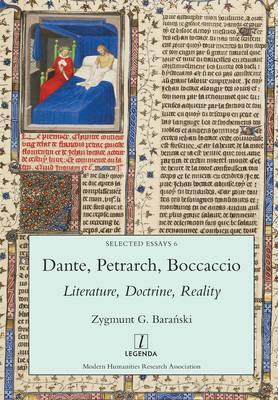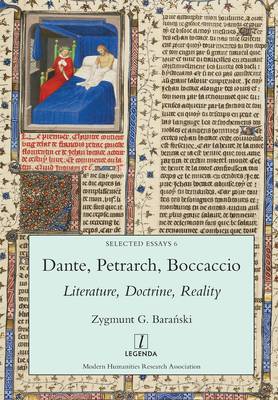
- Afhalen na 1 uur in een winkel met voorraad
- Gratis thuislevering in België vanaf € 30
- Ruim aanbod met 7 miljoen producten
- Afhalen na 1 uur in een winkel met voorraad
- Gratis thuislevering in België vanaf € 30
- Ruim aanbod met 7 miljoen producten
Omschrijving
Dante, Petrarch, and Boccaccio, the three crowns of Italian literature, dealt with literature, doctrine, and reality in distinct, yet also overlapping, ways. In this major collection of nineteen essays, Barański explores how they endeavoured to create and establish their authority and identity as writers, while developing new ideas about literature and its status in the world, and, especially in Dante's case, forging and legitimating new forms of writing. Each treated other authors, such as Guido Cavalcanti, or intellectuals, such as Epicurus, polemically and selectively as foils to their own self-portraits. Petrarch and Boccaccio had also to contend with Dante, and his extraordinary success as a 'modern' vernacular authority, though they employed very different strategies for doing so. Barański's close attention to the medieval context uniting these greatest of medieval writers is complemented by an equally close attention to the scholarly tradition on the questions addressed. To be a historian of literature also means being a historian of one's subject.
Zygmunt G. Barański is Serena Professor of Italian Emeritus at the University of Cambridge and Notre Dame Professor of Dante & Italian Studies at the University of Notre Dame. He has published extensively on Dante, on medieval Italian literature, on Dante's fourteenth- and twentieth-century reception, and on twentieth-century Italian literature, film, and culture. For many years he was senior editor of The Italianist, and currently holds the same position with Le tre corone.
Specificaties
Betrokkenen
- Auteur(s):
- Uitgeverij:
Inhoud
- Aantal bladzijden:
- 658
- Taal:
- Engels
- Reeks:
- Reeksnummer:
- nr. 6
Eigenschappen
- Productcode (EAN):
- 9781781888803
- Verschijningsdatum:
- 25/07/2022
- Uitvoering:
- Paperback
- Formaat:
- Trade paperback (VS)
- Afmetingen:
- 170 mm x 244 mm
- Gewicht:
- 1029 g

Alleen bij Standaard Boekhandel
Beoordelingen
We publiceren alleen reviews die voldoen aan de voorwaarden voor reviews. Bekijk onze voorwaarden voor reviews.










